Welcome
University Radiation Safety Committee (URSC)
The University has established and shall maintain a URSC comprising of members of the University community knowledgeable in the safe use of radioactive materials or other sources of ionizing radiation and other ancillary workers who through their work may come into contact with radioactive materials and other sources of ionizing radiation. This committee will be two-tiered, with Tier I being responsible for policy oversight and Tier II being responsible for permit approvals.
Tier I Committee will have the following mandate:
1. Formulate and implement policies, regulations and procedures governing the use of radioactive materials and radiation;
2. Provide advice on the safe use of radioactive materials and sources of ionizing radiation including x-rays in all areas under the control of the University;
3. Review reports of all inspections, incidents, unusual occurrences and relevant materials presented by the RSO. Make any recommendations deemed appropriate based on the information supplied in these reports.
4. Review all audits and reports regarding radiation safety sent to the University by the CNSC or other competent federal, provincial or municipal authorities. Make any recommendations deemed appropriate based on the information supplied in these audits or reports.
5. Respond to radiation safety issues that require immediate consultation.
6. Report annually to the Vice-president (Administration and Finance).
Tier II Committee will have the following mandate:
1. Approve or revoke permits as required under the Nuclear Safety and Control Act.
2. Approve requests to commission/decommission radioisotope labs
3. Monitor and approve the Radiation Safety Program.
4. Monitor compliance of external and internal dose monitoring.
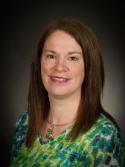 Dr. Patricia Cousins – Chair
Dr. Patricia Cousins – Chair
Dr. Patricia Cousins is the Manager of Medical Laboratories for the Faculty of Medicine at Memorial and has a Ph.D. in Medicine from MUN (Immunology and Infectious Disease). She has been trained in biochemistry, chemistry, immunology and virology, with approximately 20 years of experience in HBV and HCV research, in both animal and cell culture models of hepatitis B and C virus infection. She participates in all areas of laboratory safety with the Faculty of Medicine and contributes to teaching in graduate courses in immunology and virology. In addition, she manages the core services provided by the Medical Education and Laboratory Support Services (MELSS) and Research Support Facility within the Faculty of Medicine.
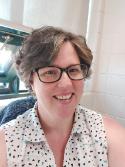 Dr. Wanda Aylward
Dr. Wanda Aylward
Dr. Wanda Aylward is a Research Associate who manages the Rigaku Powder X-Ray Diffractometer (XRD), JEOL Scanning Electron Microscope (SEM) and JEOL Electron Probe MicroAnalyzer (EPMA) for MUN’s Core Research Equipment and Instrument Training (CREAIT) network. As a Research Associate, Wanda works very closely with both faculty and students in the lab to develop research protocols, train users on the various instruments, maintain the instruments in working condition and ensure all lab safety regulations are followed. Wanda holds a Ph.D. in chemistry and has approximately 15 years of experience working in an x-ray radiation lab.
 Mr. Dion Bennett
Mr. Dion Bennett
Dion Bennett has more than 26 years of experience in the field of supply chain management, having worked for both private and public organizations. Dion is currently Supply Chain Manager within the Faculty of Science at MUN and holds the designations of Supply Chain Management Professional (SCMP), Certified Customs Specialist and a Diploma in Business Administration.
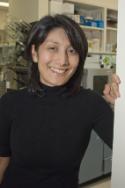 Dr. Noriko Daneshtalab
Dr. Noriko Daneshtalab
Dr. Noriko Daneshtalab is an Associate Professor at the School of Pharmacy, with expertise in pharmacokinetics/pharmacodynamics. Noriko directs a basic science laboratory focusing on animal models of autoimmune and cardiovascular disease, with extensive experience in working with various animal models of inflammation, hemorrhagic stroke, and arthritis-induced cerebrovascular damage. She has also served as the Expert Reviewer for determining interchangeability of drugs for the Government of Newfoundland and Labrador for the last 10 years, and has been heavily involved in decision makings within several board of directors of Canadian non-profit scientific organizations for many years, including Canadian Society for Pharmaceutical Sciences. Noriko has been heavily involved in decision making with several Canadian non-profit scientific organizations board of directors, including the Canadian Society for Pharmaceutical Sciences
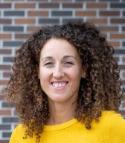 Dr. Kayla Holder
Dr. Kayla Holder
Dr. Kayla Holder is a Postdoctoral Fellow within the Faculty of Medicine at Memorial. Kayla holds a Ph. D. in Medicine with a research focus of how the immune system responds to and is shaped by HIV-1, HCMV and SARS-CoV-2 infection. She has served as student representative on the URSC since 2017 and has over 10 years’ experience working with RAM in a Containment Level (CL) 2+ research environment.
 Dr. John Jamieson
Dr. John Jamieson
Dr. John Jamieson is an Associate Professor and Canada Research Chair in Marine Geology within the Department of Earth Sciences at Memorial. John's research focuses on submarine volcanic and tectonic processes, seafloor exploration, and marine mineral resources. Dr. Jamieson runs the Marine Radioisotope Laboratory, a gamma spectrometry facility primarily focused on uranium series geochronology for dating mineral deposits on the seafloor. He teaches undergraduate and graduate courses in structural geology and economic geology.
 Ms. Rayna Luther
Ms. Rayna Luther
Ms. Rayna Luther is the Director of Facilities Management and Ancillary Services at Memorial University, Grenfell Campus. Rayna is a Licensed Professional Engineer, she holds both a Bachelor’s and Master’s of Science in Engineering from the University of New Brunswick, and a diploma in Occupational Health and Safety from the University of New Brunswick. Rayna also serves on the advisory council on occupational health and safety as a management representative.
 Dr. Jaeok Park
Dr. Jaeok Park
Dr. Park is an Assistant Professor with the Department of Biochemistry, Faculty of Science at Memorial. Jaeok's main areas of expertise are enzymology and structural biology and his research focuses on allosteric regulation of metabolic enzymes.
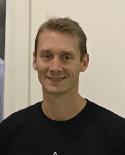 Dr. Rod Hobbs – Radiation & Biological Safety Officer
Dr. Rod Hobbs – Radiation & Biological Safety Officer
Dr. Hobbs is Memorial's Radiation and Biological Safety Officer (RSO/BSO), as well as the Designated Official (DO) for Memorial's Controlled Goods Program and the Responsible person (RP) for Memorial's Cannabis Research License. Rod holds a Ph.D. in molecular biology, which focussed on the use of genetic tools to evaluate the evolution of cold adaptation in north Atlantic fish species. Rod has over 10 years experience maneuvering through the legislative requirements for radiation safety in Canada and is responsible for administrating and managing Memorial's biosafety and radiation safety programs. Rod is the point of contact for all matters relating to these safety programs.
Dr. Janet Brunton - profile to come
Mr. Fred Rideout - profile to come
Mr. Geoff Whiteway - profile to come
Radioisotope User Permit (RUP) Application
A MUN Radioisotope User Permit (RUP) is required for all activities (research and teaching) that involve the use or manipulation of ionizing radiation which are:
- Conducted on University premises, or in a building or location administered by or under the control of the University,
- Undertaken by University personnel (staff or students), or
- Funded through University-administered funding.
If you are you having trouble accessing or completing the forms in Windows or Mac OSX? Click HERE
New Applicants/Renewals
The following form is available to researchers who need to obtain a new Radioisotope User Permit (RUP) or renew an existing Permit. Instruction for completion are provided within each document.
Use of electronic signatures is highly recommended.
Please forward completed application packages via email to bso@mun.ca (Simply save the pdf with electronic signatures, and email the file to the BSO. Printing hard copy originals and forwarding of paper applications or scanned copies is discouraged).
Only current versions of the application form will be accepted (current version is 2.1) (older versions will be returned to the applicant for re-submission).
Radioisotope User Permit (RUP) Application form 2016 (Version 2.1 fillable PDF)
Current Radioisotope User Permit Holders
For current Radioisotope User Permit (RUP) holders who intend to modify or change aspects of their research with ionizing radiation (eg. change in procedures, radioisotopes, locations, etc.), an amendment to their Radioisotope User Permit (RUP) must be approved by the URSC.
Radioisotope User Permit (RUP) amendment request forms are available on HSMS>Documentation. Please forward the completed application via email to rso@mun.ca (hard copy originals are not required and forwarding of paper applications is discouraged).
Only current versions of the amendment form will be accepted (current version is v3.0) (older versions will be returned to the applicant for re-submission).
University Radiation Safety Committee (URSC)
The University has established and shall maintain a URSC comprising of members of the University community knowledgeable in the safe use of radioactive materials or other sources of ionizing radiation and other ancillary workers who through their work may come into contact with radioactive materials and other sources of ionizing radiation. This committee will be two-tiered, with Tier I being responsible for policy oversight and Tier II being responsible for permit approvals.
Tier I Committee will have the following mandate:
1. Formulate and implement policies, regulations and procedures governing the use of radioactive materials and radiation;
2. Provide advice on the safe use of radioactive materials and sources of ionizing radiation including x-rays in all areas under the control of the University;
3. Review reports of all inspections, incidents, unusual occurrences and relevant materials presented by the RSO. Make any recommendations deemed appropriate based on the information supplied in these reports.
4. Review all audits and reports regarding radiation safety sent to the University by the CNSC or other competent federal, provincial or municipal authorities. Make any recommendations deemed appropriate based on the information supplied in these audits or reports.
5. Respond to radiation safety issues that require immediate consultation.
6. Report annually to the Vice-president (Administration and Finance).
Tier II Committee will have the following mandate:
1. Approve or revoke permits as required under the Nuclear Safety and Control Act.
2. Approve requests to commission/decommission radioisotope labs
3. Monitor and approve the Radiation Safety Program.
4. Monitor compliance of external and internal dose monitoring.
URSC Meeting Minutes
- Oct 7, 2015
- May 26 2016
- Nov 30 2016